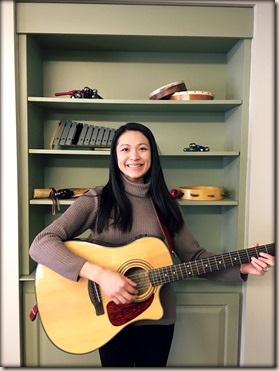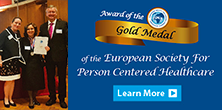What is Music Therapy? By Dorothy M. Davies, BMT, MA, MTA, NMT Fellow
You don’t need to be a musician to benefit from music therapy.
My name is Dorothy Davies and I am an accredited music therapist with advanced training in Neurologic Music Therapy. In this article, I will be answering some common questions related to music therapy, including:
● Do I have to know how to sing or play an instrument?
● Is music therapy the same as music education or performance?
● What is music therapy?
● Who is it for?
● What areas can be addressed?
Do I have to know how to sing or play an instrument?
No, the focus of music therapy is not on musical skills or expertise. Rather, music is used as the primary tool in order to address clinical, non-musical goals.
Is music therapy the same as music education or performance?
No, music education (lessons) focus on the development of musical skills, techniques, and expertise. Music performance focuses on the implementation of those skills for entertainment purposes.
What is music therapy?
Music therapy is a therapeutic service provided by an accredited music therapist (MTA), in which music is used as the primary tool in order to address clinical, non-musical goals. These may include development and/or training within cognitive, motor, speech/language, social, behavioural, emotional, and mental health domains.
Neurologic Music Therapy (NMT) is a specialized area of music therapy that requires additional training. It is a research- and evidence-based system built on how music perception and music production influences the brain. Music-based exercises aim to address functional, non-musical goals in 3 main areas: motor, cognition, and speech/language.
Did you know that music can be harmful if not used properly?
Accredited music therapists are trained to use music clinically and intentionally in order to support clinical goals and overall health and well-being.
For example, if not carefully delivered, music can bring up trauma for some clients, which requires proper support in response. If not carefully delivered, music can also overstimulate some clients.
Who is it for?
Music therapy has the unique ability to benefit people of all ages and abilities. This includes toddlers, children, adolescents, adults, and elderly individuals. Some examples of client populations that can benefit from music therapy include:
● Alzheimer’s/Dementia
● Stroke
● Brain injury
● Parkinson’s Disease
● Palliative care
● Speech disorders
● Developmental disabilities
● Autism spectrum disorder (ASD)
● Down syndrome
● Attention deficit hyperactivity disorder (ADHD)
● Depression
● Anxiety
What areas can be addressed in music therapy?
Music therapy can address goals related to cognition, motor, speech/language, developmental, social, behavioural, emotional, and mental health.
For example:
● Exercises can aim to train and/or rehabilitate functional abilities. These may include:
○ Cognitive goals related to memory, executive functions, and attention
○ Motor goals related to gait, balance, range of motion, gross/fine motor skills, strength, and endurance
○ Speech/language goals related to retrieval and production of functional phrases, speech intelligibility, articulatory control, and respiratory capacity
● Exercises can aim to enhance learning and education
● Exercises can aim to teach appropriate social behaviour and conduct
● Exercises can aim to reduce feelings of depression and anxiety and encourage self-expression and self-exploration
● Music therapy services can also be provided through adapted music lessons, where learning of musical skills are paired with therapeutic goals
Music therapy services can be offered on an individual or group basis.
In summary, music therapy is a unique form of therapy that can address people of all ages and abilities on their journey of realizing potential and shaping health through music.
If you have any questions, please visit www.cornerstonemusictherapy.com for more information.
For specific inquiries, please email me at dorothy@cornerstonemusictherapy.com.
Follow Cornerstone Music Therapy onFacebook,Instagram, andTwitter for updates on music therapy services.

